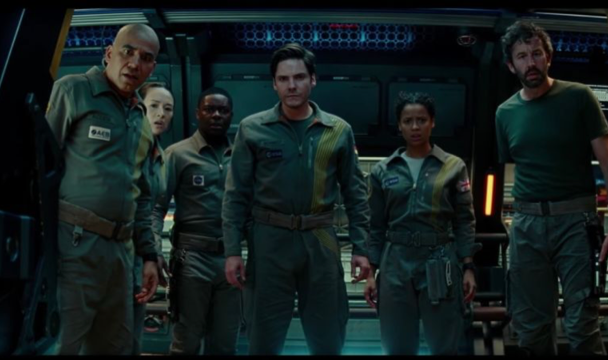Is the surprise sequel “The Cloverfield Paradox” worth watching?

By Drew Henderson // A&E Editor
I love the “Cloverfield” franchise, as it does something that normal movies do not do. They are always shrouded in secrecy, and you do not know what the big reveal is until the final moments of each film. Netflix and Bad Robot made cinematic history by dropping the first trailer for “The Cloverfield Paradox” during the Super Bowl, and then releasing it the same night after the game. It was all I was looking forward to after the game was over, as the trailers for each movie has always intrigued me, making me wonder what JJ Abrams and crew have cooked up for everyone to figure out this time. Once the game was over, I turned on Netflix and watched the movie. As the credits rolled almost two hours later, did I feel like the movie lived up to its hype? Kind of.
Taking place in the future, “The Cloverfield Paradox” sees a group of astronauts get caught up in a experiment gone wrong, and they must find a way to solve the problem before unknown forces pick them off one by one. The main story feels reminiscent of other space survival films such as “The Martian,” but it also just feels off at the same time. The first half of the film did a great job of building up the suspense, as body horrors and oddities around the space station serve to freak out and build a environment of suspense and vulnerability. But when the reason behind everything is discovered in the second half, it feels as if events happen, people are put in danger, and in the moment it feels very tense. But, after anything happens, it just feel like the crew’s reaction to the danger is just dull and muted. This is pretty disappointing too; for a movie that runs for an hour and 40 minutes it really never lets up, as the crew tries to survive and figure out what is going on. Not to knock the cast, as everyone pulls their weight and every interaction feels fluid and natural, especially from Guga Mbatha-Raw, Daniel Brühl and Chris O’Dowd.
While the other “Cloverfield” movies have small contained stories that thrive on that setting of the unknown, “The Cloverfield Paradox” tries to be bigger than its predecessors with a side story that tries to connect the other movies. However, it ultimately feels like they jumbled the timeline or multiverse of these films, more so than it already has. The trailer also sells itself as a prequel to the original, but aside from the ending, it does not connect to it at all, and may not even take place close to the events of the original. The answers that connect the films in this franchise are there, but it is confusing, and not everyone may understand what it means for the franchise.
“The Cloverfield Paradox” is a good film, but not a great “Cloverfield” film. Its story is fairly simple, but feels like it lacks a bit of urgency. The B story of the film is also a bit of a mess, trying to act as connective tissue to the franchise, but failing to really flesh out why the space station malfunction connects to the other films. But with solid performances from the cast, great camera work, and a score that helps elevate the film from “10 Cloverfield Lane” composer Bear McCready, “The Cloverfield Paradox” is as good as any Netflix original film can get—though when looking at their track record, that is not saying much.